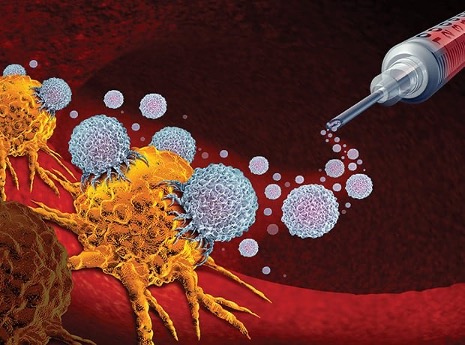Francis Crick and ICL spinout raises £90m to clinically develop cancer treatments
July 11, 2024
Source: drugdu
 480
480
 The Francis Crick Institute and Imperial College London (ICL) cancer therapy spinout, Myricx Bio, has raised £90m in series A financing to advance its novel cancer treatments into clinical development.
The Francis Crick Institute and Imperial College London (ICL) cancer therapy spinout, Myricx Bio, has raised £90m in series A financing to advance its novel cancer treatments into clinical development.
The investment will help to develop the company’s therapies to treat a range of different tumour types, including breast, lung and colorectal cancer, to advance into clinical testing.
Currently the largest series A round to ever be raised by an EU academic biotech spinout, the round was co-led by life science investors Novo Holdings and Abingworth, with additional investors including British Patient Capital, Cancer Research Horizons and Eli Lilly and Company, as well as founding investors Brandon Capital and Sofinnova Partners.
The spinout is focused on the discovery and development of a novel class of payloads for antibody-drug conjugates (ADCs), which involves antibodies that bind to the surface of certain tumour types to deliver a drug to its target.
The drugs selectivity inhibit an enzyme known as N-myristoyltransferase, which works to modify proteins and plays a key role in multiple specific processes cancer cells use to stay alive.
“Antibodies have become a mature therapeutic modality,” explained Professor Ed Tate, co-founder of Myricx, GSK chair in chemical biology, department of chemistry, ICL and satellite group leader, the Crick.
“It hits one specific point in cell biology that links into dozens of different pathways, many of which are critical for cancer cells compared to normal cells,” Tate added. “And, where most ADC payloads have an immediate effect, our drug takes up to several days before it starts to kill cancer cells, giving normal tissues time to recover.”
So far, preclinical investigations of the inhibitors have shown complete and durable tumour regressions, which were well-tolerated, in several animal models of solid cancers and patient-derived organoid models.
With these potentially novel treatments, Myricx hopes that they can more selectively affect cancer cells without toxic side effects over a longer duration of time while targeting dormant or senescent cells, avoiding cancer recurrence.
https://pharmatimes.com/news/francis-crick-and-imperial-spinout-raises-90m-to-clinically-develop-cancer-treatments/
By editorRead more on
- Gan & Lee Pharmaceuticals’ new PROTAC drug GLR2037 tablets have been approved for clinical trials to enter the field of prostate cancer treatment March 3, 2026
- AideaPharmaceuticals plans to raise no more than 1.277 billion yuan through a private placement to focus on the global clinical development of innovative HIV drugs March 3, 2026
- Giant Exits! Its Star Business Acquired March 3, 2026
- Focusing on cardiovascular and cerebrovascular diseases! OpenMediLead Medical Intelligence Dual Engines Launch Internal Testing, Connecting Drug Development and Clinical Diagnosis in a Closed Loop March 3, 2026
- Innovent Biologics Announces Approval of New Indication for BTK Inhibitor “Pitubrutinib” in China March 3, 2026
your submission has already been received.
OK
Subscribe
Please enter a valid Email address!
Submit
The most relevant industry news & insight will be sent to you every two weeks.



